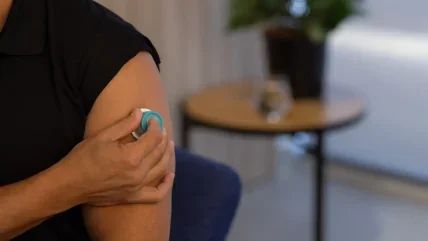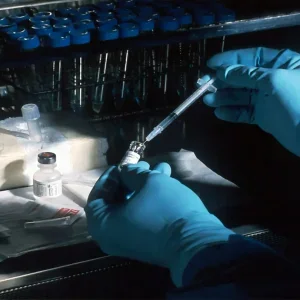
Vaxxas, an Australian clinical-stage biotech firm, has received a licence for a next-generation vaccine antigen (DS2) for respiratory syncytial virus (RSV) from the US National Institutes of Health (NIH).
The agreement allows Vaxxas to develop the first needle-free RSV vaccine that remains stable at room temperature and is ready for clinical trials.
The University of Queensland spin-out is launching a clinical trial for the first RSV vaccine delivered via the skin using its HD-MAP platform.
The next-generation DS2 RSV vaccine antigen was created by NIH scientists. It aims to trigger a stronger and more durable immune response against RSV than the currently approved vaccine antigen, DS-Cav1.
Vaxxas president and CEO David Hoey said: “Published preclinical results show the potential immunogenic advantages of this next-generation antigen as the basis for an RSV vaccine that could offer more robust and durable protection against the virus, compared to vaccines already on the market.
“These advantages, coupled with our needle-free technology’s potential to eliminate the need for refrigerated distribution and enable self-administration, could offer a vaccine that makes a significant impact on the way we protect populations against this serious respiratory infection in the future.”
The Australian biotech firm has developed a high-density microarray patch (HD-MAP) vaccination platform, which is progressing towards commercialisation.
Vaxxas has completed five Phase 1 clinical trials with over 500 participants.
These trials include a second-generation Covid-19 vaccine, a flu vaccine delivered via HD-MAP that shows better immunogenicity than the approved injectable, and a measles and rubella vaccine.
Vaxxas is conducting its first US Investigational New Drug (IND)-enabled Phase 1 clinical study for a pre-pandemic influenza vaccine with 258 participants. The initiative is backed by the US Biomedical Advanced Research and Development Authority (BARDA).
The biotechnology company also plans to advance its needle-free HD-MAP/RSV vaccine to a Phase 1 clinical study after finishing preclinical development.
RSV is a contagious virus that commonly causes respiratory illness worldwide. It particularly affects young children and older adults, leading to severe illness or even death.
In 2023, the first RSV vaccines developed by GSK and Pfizer were approved in the US and Europe.






